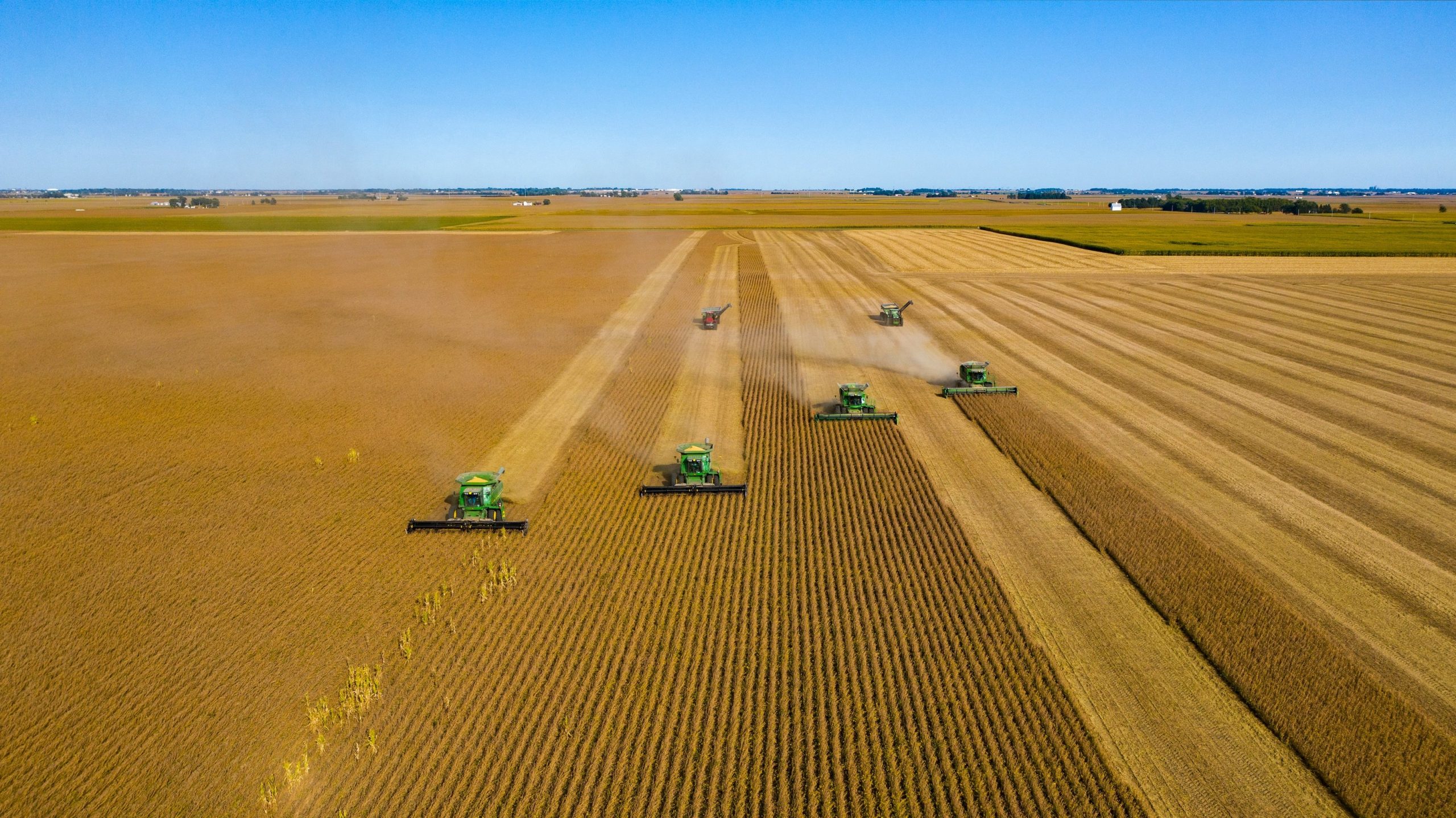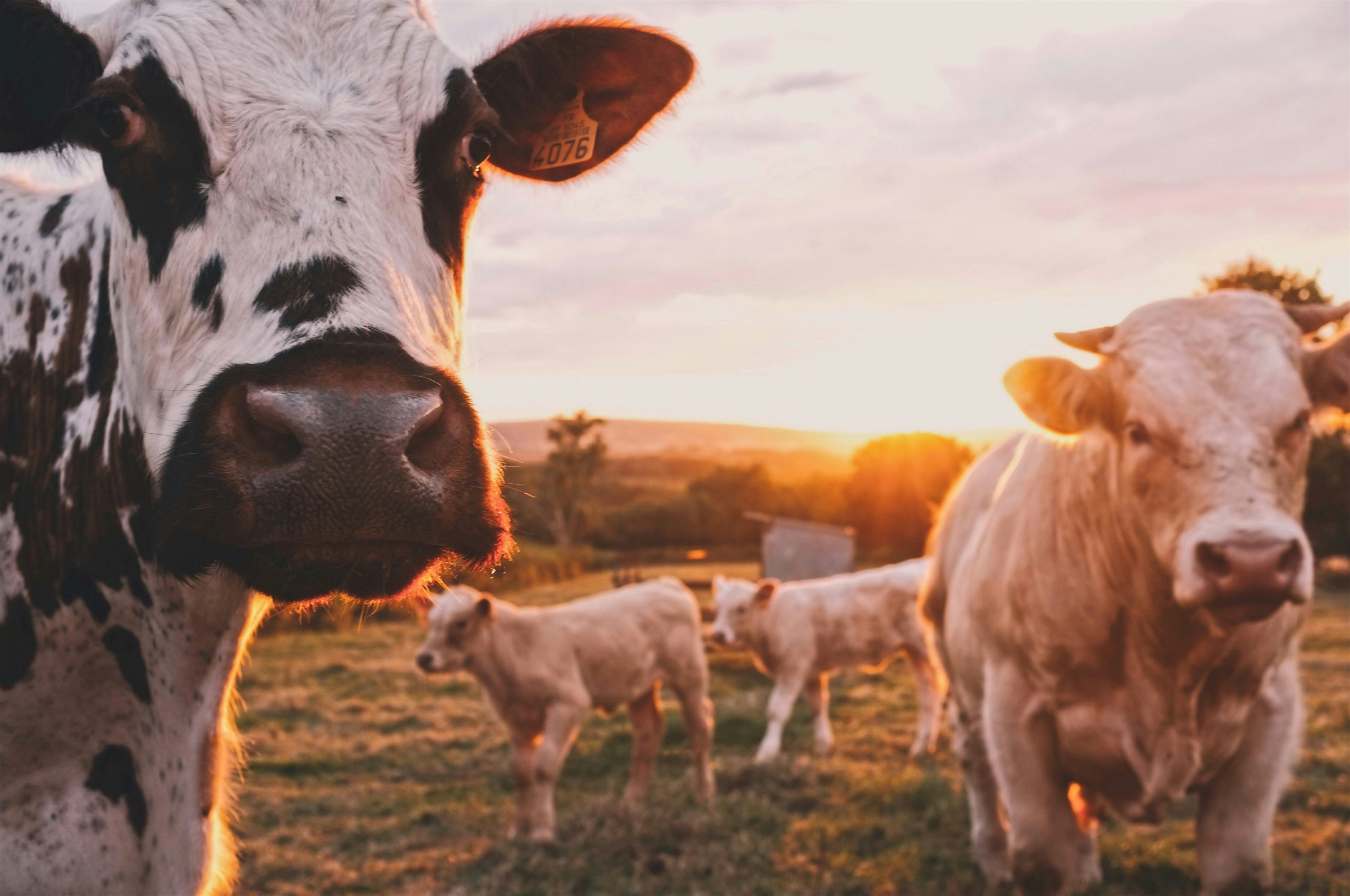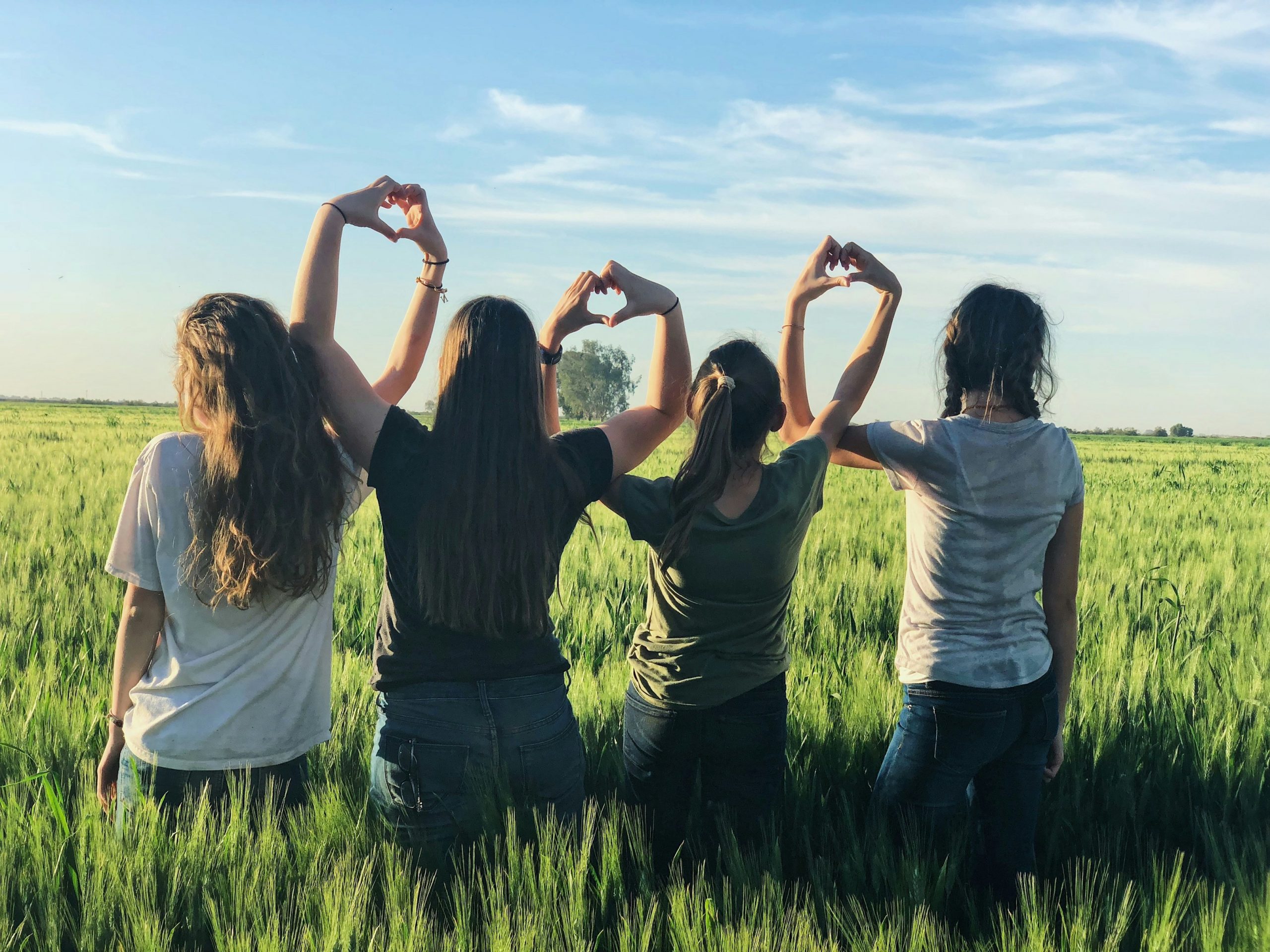News
Chasing the Harvest: A Guide To Farm Work in Australia and New Zealand
27 June 2024

Farm work in Australia and New Zealand is an incredible adventure. Basic farm jobs are popular among backpackers on working holiday visas, particularly in Australia. Imagine earning money while experiencing rural life, meeting new friends, and extending your stay Down Under. Dreamy!
However, some Brits chose to skip the UK winter and follow the harvest season overseas. Agricultural workers can simultaneously work abroad, escape the colder months, and earn decent money.
Have we piqued your interest? Working abroad on a backpacking trip is one thing, but stepping into a farm job is an experience like no other. Working in the great outdoors is an ideal way to experience Australia or New Zealand like a local, getting away from the tourist route and seeing more of the country.
This guide covers everything you need to know to get started on your working holidays in agriculture. We will outline the types of work available, what to expect on a typical day, and how to get yourself out there on the job.
Why Choose Farm Work In Australia and New Zealand?
Farm work is not an easy job. Often, the hours are long, and the labour is physically demanding. And let’s not forget that you will be at the mercy of the Australian or New Zealand sun. This type of work is character building!
So, why choose to do it?
Farm and yard work can be incredibly rewarding despite how challenging some days can be. Whether you are fruit picking, driving machinery, or working with animals, a farm job abroad offers numerous benefits:
- Earning Money: A great way to fund your travels.
- Rural Experience: Get a taste of the country and see how locals live.
- Meeting People: Connect with locals and fellow travellers.
Farmworker demand is high throughout the year, especially during peak seasons. Completing farm work in Australia can extend your stay if you’re on a year working holiday visa, giving you more time to explore.
Types of Farm Work Jobs
So let’s get something straight – farm work isn’t just about picking fruit. Yes, this is one of the most common roles available in rural work. However, plenty is available for those with relevant skills, like operating machinery or working with animals.
Here are some common jobs:
- Fruit Picking: Apples, berries, and citrus fruits. This is tough work, but it pays well. It’s perfect for backpackers wanting to extend their visas up to two years and earn extra cash for travelling.
- Packing: Preparing produce for shipment. Similar to the above.
- Harvesting and Planting: Sowing seeds, planting crops, and working on the harvest are tasks for specialised individuals who can drive tractors and combines.
- Livestock: Cattle work and working with other livestock are perfect for those who love animals. Sheep farms are popular in New Zealand.
These jobs are seasonal, so the type of work available depends on the time of year. Be prepared for physical labour and long hours, but also expect a rewarding experience while getting the opportunity to live abroad.
Best Regions for Farm Work In Australia
Many regional areas across Australia offer opportunities for farm work. Some top regions for working holiday farm work are the Riverina in New South Wales, the Lockyer Valley and the Darling Downs in Queensland, and the Goulburn Valley in Victoria.
These areas have a high demand for seasonal farm workers and offer various farm work options.
To obtain your second—or third-year visa, always check current immigration guidelines for accepted regions for regional work.
Best Regions For Farm Work In New Zealand
New Zealand is a wonderful place to work on a working holiday scheme visa. Agriculture is a particularly important industry, making New Zealand perfect for exploring while following harvest seasons.
You could pick fruit in the sunny Hawke’s Bay or Nelson, then hop down to Queenstown or Wanaka to work amongst the snow. Working in New Zealand during your holiday couldn’t be easier with all the job support available.

Getting a Working Holiday Visa
The correct visa is required for both Australian and New Zealand farm work. Here’s a quick overview of how to get one:
Eligibility: Check the eligibility criteria for Australia and New Zealand. Applicants must typically be between 18 and 30 years old (35 for NZ).
Application Process:
- Apply Online: Fill out the application form on the official immigration website.
- Submit Documents: Provide necessary documents like your passport and proof of funds.
- Pay the Fee: The visa application fee varies.
Processing Time: It can take a few weeks to a few months.
Visa Duration: Usually valid for 12 months, with the possibility of an extension for a second year visa or third year visa.
For a working holiday in Australia, you’ll need either a Working Holiday Visa (subclass 417) or a Work and Holiday Visa (subclass 462), depending on your nationality. There have been recent changes to the eligibility criteria for obtaining a second or third Working Holiday Visa. Since November 2021, the Australian government requires working holidaymakers to complete at least nine months of agricultural work in regional Australia before they can apply for a second or third visa.
New Zealand is slightly different. Working holiday visas allow young people from the United Kingdom to travel and work in New Zealand for up to 36 months. These visas are available to individuals aged 18 to 35 for UK citizens.
Australian Immigration website: for detailed information on eligibility, application processes, and the latest updates on farm work requirements.
New Zealand Immigration website: for detailed information on eligibility, application processes, and the latest updates on farm work requirements.
Travel Insurance for Farm Workers
Now to the nitty-gritty details. Travel insurance is crucial, especially when you are overseas for a prolonged period and working in agriculture. It’s important to be covered and stay safe while having fun learning new skills.
Here are key add-ons to consider for your policy:
- Accident and Injury Coverage: Essential for farm work.
- Medical Expenses and Emergency Evacuation: Ensure you’re covered for medical emergencies.
- Trip Cancellation and Interruption: In case plans change.
- Personal Liability: Covers you if you accidentally cause damage or injury.
We offer specialist farm work insurance, a winning combination of flexibility and comprehensive cover. The policy is completely flexible, and you can choose the best Work Pack for your individual plans and adjust your quote accordingly.
Work Pack 1 – Working at an animal sanctuary with farm animals, farm labourers with no use of machinery or contact with livestock, and fruit picking without machinery.
Work Pack 2 – Farm labourer using a tractor, machinery or working with livestock, farm manager, fence erector (with use of chainsaw), forestry officer, fruit picking with machinery
Work Pack 3 – Fish farmer, fork-lift truck driver, horse riding instructor, stable hand
Work Pack 4 – Horse dentistry, mustering cattle on horseback, gardening with the use of heavy machinery
You are expected to receive appropriate training for the jobs and tasks you undertake on a farm or agricultural setting. Work Pack 2 is the most common add-on to insurance for farm workers heading to Australia or New Zealand.
It’s important to note that our policies do not cover a worker’s tools. While there is personal liability cover, this only applies during leisure and travel. It does not apply while the policyholder is working, as we expect that the employer would provide liability cover.

Finding Farm Work In Australia and New Zealand
Securing a job is easier than you think. Plenty of companies offer job support for those on a gap year. Here are some tips to help get you started:
- Online Resources: Websites like Harvest Trail and Backpacker Job Board.
- Local Agencies and Hostels: Many hostels have job boards and connections with local farms.
- Networking: Talk to other travellers and locals for job leads.
Be proactive and flexible. Sometimes, the best jobs come from word-of-mouth recommendations!
What to Expect: Work and Living Conditions
Farm work can be physically demanding and requires a certain level of endurance and commitment. Expect to start your day early, often before sunrise, and work long hours, sometimes up to 10-12 hours daily, depending on the farm and the season. This hard work is often rewarded with competitive hourly wages or based on the produce you pick. Understanding the pay structure before you start to ensure it aligns with your financial expectations is essential.
When it comes to accommodation, there are several options. Many farms offer on-site housing, which can be convenient and cost-effective. However, you might also consider staying in nearby hostels catering to backpackers and seasonal workers or renting a place with fellow workers. Living conditions can vary, so checking reviews or speaking to previous workers is a good idea if possible.
Safety is a top priority on farms. Always follow the safety guidelines provided by your employer and use the equipment given to you. This might include wearing protective gear, using tools correctly, and adhering to hygiene standards, especially when handling food.
Despite the rigorous work schedule, the social aspect of farm work is vibrant. You’ll find yourself part of a community of like-minded individuals, sharing experiences and forming friendships that can last a lifetime.
Essential Gear and Packing Tips
Packing the right gear is crucial to making your farm work experience as smooth and comfortable as possible. Durable, weather-appropriate clothing is a must. Think layers for changing weather conditions, long sleeves to protect against the sun and insects, and sturdy boots to handle rough terrain. A wide-brimmed hat and gloves can protect you from the elements and reduce fatigue.
Certain gear can make a significant difference in addition to clothing. A reliable water bottle is essential to staying hydrated throughout long working days. Consider a hydration pack if you’ll be working far from water sources. Sunscreen and insect repellent are also necessary to protect your skin from sunburn and bites.
Packing light is recommended, but ensure you don’t miss out on the essentials. A backpack is ideal for carrying your daily needs and keeping your hands free for work.
Are You Ready To Chase The Harvest Down Under?
Now that you know the essentials, it’s time to plunge. Farm work in Australia and New Zealand offers an unforgettable experience. Recap the key points, pack your bags, and prepare for an adventure.
Enjoy the journey, make new friends, and immerse yourself in the rural charm of these beautiful countries. Happy harvesting!
FAQs
What types of farm work can I do in Australia and New Zealand?
Common farm jobs in both countries include fruit picking, packing, planting, cattle herding, and vineyard work. The type of work available often depends on the season and region.
What are the eligibility requirements for a working holiday visa in Australia and New Zealand?
Eligibility typically includes being between 18 and 30 years old (or up to 35 for some nationalities), holding a valid passport, and having sufficient funds for your stay. Specific requirements can vary, so it is important to check the details for each country’s visa.
How do I find farm work jobs once I arrive?
You can find farm work through online job boards, local agencies, and backpacker hostels. Networking with other travellers and locals can also lead to job opportunities. Being flexible and proactive can help you secure a position more quickly.
What should I pack for farm work in Australia and New Zealand?
Pack durable, weather-appropriate clothing, sturdy boots, a hat, gloves, and a reliable water bottle. Sunscreen and insect repellent are also essential. It’s best to pack light but include all necessary items to ensure comfort and safety while working.
Do I need travel insurance for farm work, and what should it cover?
Yes, travel insurance is essential. Your policy should include coverage for accidents and injuries, medical expenses and emergency evacuation. This ensures you’re covered for any unexpected situations during your stay.
Related posts
We’re all going on a working holiday!
12 July 2012Read more
Places to Visit | Travel NewsLondon is the most highly-rated city destination
30 July 2012Read more
Misc | Special EventsA Travel Insurance Policy for Father Christmas
3 December 2012Read more
CompetitionsHidden Gems Travel Competition Entries
7 March 2013Read more